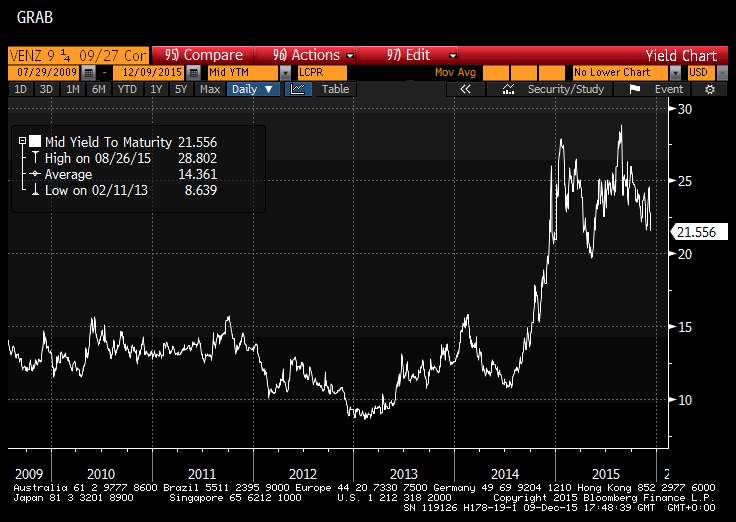Three things to know about the Venezuelan election results
This article by Harold Trinkunas for the Brookings Institute may be of interest to subscribers. Here is a section:
Second, Venezuela is entering a period of divided government, one that will potentially be riven by conflict among the branches of government. The outside actors that have thus far played a positive role—such as regional multilateral institutions, civil society, legislators across the hemisphere, and governments interested in supporting democracy—will need to continue to pay attention to and support favorable outcomes in Venezuela even when the country is out of the international headlines.
And third, Venezuela’s economy is in very serious trouble now that oil has fallen as low as $35 a barrel. Further economic contraction, poverty rates not seen since before Hugo Chávez took office, and inflation in excess of 200 percent are all expected in 2016. If the government (both Chavistas and opponents) come to their senses and agree to a negotiated plan on how to address the economy, they will need the support of both traditional multilateral financial institutions and non-traditional sources of financing (such as China).
Venezuela is in trouble. The oil price upon what can only be described as a despotic regime depends has collapsed. This has created problems the country has not had to deal with in over a decade and the evolving election result highlights just how much thirst for change there is among the population.

The official rate does not give us an accurate picture of the Bolivar’s value and the stock market is a better reflection of domestic inflation than share value. US Dollar denominated government bonds, on the other hand, give us a more realistic picture of how the government’s prospects are assessed by international investors. The yield on the 2027 8.25% bullet bonds has been ranging above 20% since early this year and compressed on news of the opposition’s victory.
It is open to question just how much change can take place with so much power concentrated in the hands of the president but there is at least hope some progress can be made in tackling the issues facing the country.
It often takes a crisis to force change. High commodity prices helped paper over a lot of cracks in the standards of governance evident in Latin America. As Warren Buffett has said “you don’t know who’s been swimming naked until the tide goes out”. The collapse in industrial metal and energy prices in particular has taken a toll on all commodity exporters but Latin America in particular because so many countries voted for hard left administrations that spent money on glamour projects, ideology and graft rather than addressing structural issues.
A winning strategy is seldom questioned until it stops working and this may be what we are now seeing in Latin America with populist, left leaning administrations under increasing competition from more market friendly competitors. Macri’s victory in Argentina, the growing call for Dilma Rousseff to be impeached and the Venezuelan election result can all be viewed in this light.
This also suggests that although commodity prices are still weak, the potential for improving governance could play a significant factor in a recovery not least as currencies stabilise. Latin America could be an interesting region in 2016 following what has been a long hiatus.
Back to top


